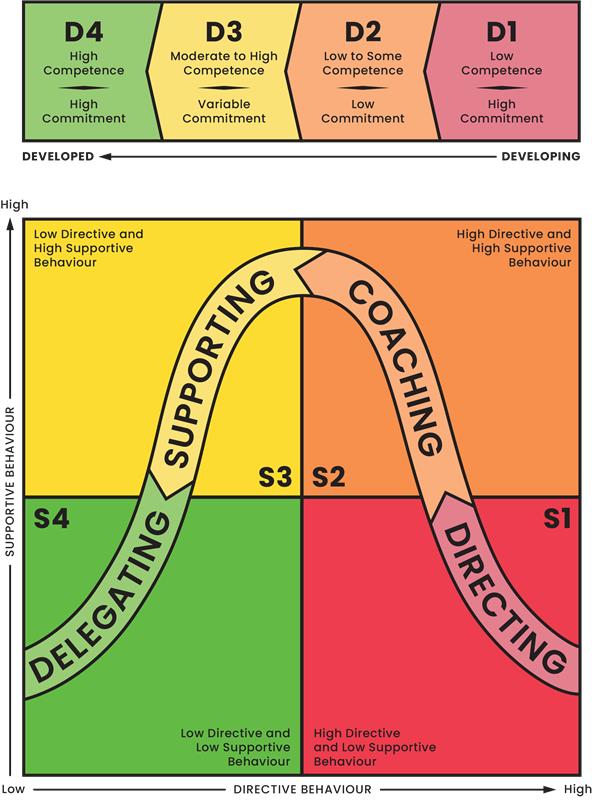One of the biggest challenges when you step into senior leadership is that sense of becoming removed from the day-to-day. Suddenly, you're not just supporting staff – you're supporting leaders, who themselves are supporting others.
That shift can be subtle but critical.
The real challenge? Knowing how best to guide those middle leaders so they’re not just coordinating a subject, but truly leading one.
Direction or coaching – or both?
When I visit schools in my role as a consultant, I often hear leaders ask:
"Should I be more directive or take a coaching approach?"
There’s no universal answer. It depends on the individual – their experience, confidence and context.
One explainer I return to is Hersey and Blanchard’s Situational Leadership Model. It can help you adjust your approach depending on where your subject leader is in their development.

Quick explainer:
Leaders often begin at D1 — low competence but high enthusiasm. They need direction, not autonomy.
As they move to D2 and D3, commitment can dip, even while their competence improves. After all, leadership is tough. This is where coaching becomes key.
Eventually, at D4, they’re both committed and capable. That’s the goal – but they may need help getting there.
Don’t assume shared context
Even experienced staff may not fully grasp your school's wider context – your community, priorities or Ofsted journey. Make it part of your conversations with subject leaders. The better they understand your specific setting, the better decisions they’ll make.
Encourage reflection on impact
Many subject leaders work hard, but not all work impactfully. Use these prompts to help you and your subject leaders to reflect:
- At what stage do they consider the impact of new initiatives?
- Can you build reflection on impact into your 1:1s?
- Are evaluation templates structured around outcomes?
- Could you set milestones to support ongoing reflection?
Make the mission lived, not laminated
Ask your subject leaders:
"How does our school mission apply to your subject – in lessons, books, assessments, pupil voice?"
If they’re unclear, revisit it together. Mary Myatt warns of values becoming laminated not lived – but with strong subject leadership, your school’s ethos can thrive at every level.
Are they leading or just coordinating?
Leadership is more than admin. It’s about vision, influence and motivating others. Ask yourself:
- Do your subject leaders understand this difference?
- How are you helping them grow in confidence and clarity?
How we can help
At Leading English, we support schools with:
- Frameworks, planning tools and implementation guidance
- Three consultancy visits per year
- Coaching that builds sustainable leadership
- Resources that increase enjoyment and accelerate progress in English
Let’s have a conversation about how we can support your subject leaders to lead with confidence and purpose.





